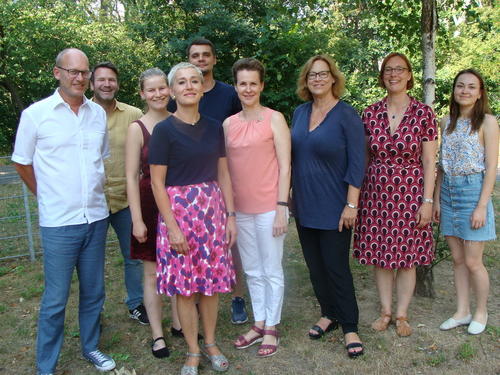About the Project
"Variations of Governance in Hybrid Regimes: Business, State and Civil Society in contemporary Russia"
Duration: 01.04.2018 - 31.03.2021
Funding: DFG (German Scientific Foundation)
Projectmanagement: Prof. Dr. Sabine Kropp (Otto Suhr Institut, Free University Berlin), Prof. Dr. Katharina Bluhm, (Institute for East European Studies, Free University Berlin), Prof. Dr. Claudius Wagemann (Goethe University, Frankfurt am Main)
Despite growing literature on the emergence and functioning of modern hybrid regimes, there has been relatively little research on how those regimes address specific policy issues. This holds particularly true for Russia, which can be considered a „typical case“ of a modern hybrid regime. The results of recently published studies show that the Russian state regularly relies on the resources of both companies and civil society to deal with specific policy issues. While many studies focus on the role that civil society actors play in such governance patterns, less is known about the role of business. Private and parastatal companies, however, are of particular research interest, as they have more resources than civil society organizations and operate on international markets. These actors therefore are the main focus of the project.
One of the areas in which interactions between business and state in Russia take place are Corporate Social Responsibility (CSR) activities of large enterprises. In the narrow understanding, CSR is a voluntary commitment taken by private companies. The voluntary character of CSR has been repeatedly emphasized by Russian business associations. However, CSR has also been used by the state as a tool to integrate companies into the restored power vertical and to oblige them to support state programmes. This applies in particular to the subnational level, where regional administrations are burdened with a variety of socio-political and economic developmental tasks without having sufficient tax revenues at their disposal. The research project aims to find out a) why companies, state actors and civil society organizations participate in CSR arrangements; b) what kind of variations of governance result from these interactions; c) how they are linked to vertical instruments of state control. CSR thus serves as a case study to investigate patterns of governance in new hybrid regimes.
The research project is situated at the interface of political science and organizational sociology. From a theoretical point of view, the project combines the metagovernance perspective with the approaches of resource dependency and resource exchange. The project involves a comparative qualitative case study of various industries and regions in Russia. It is based on 21 large-scale enterprises from the oil and gas industry, metallurgy and trade in three selected regions (Volgograd, Tyumen, Kemerovo). The case study design is linked to Qualitative Comparative Analysis (QCA), which allows to analyze different configurations and invariants of sub-national governance patterns. The project therefore aims to provide an added value to the methodological development in the social sciences.


